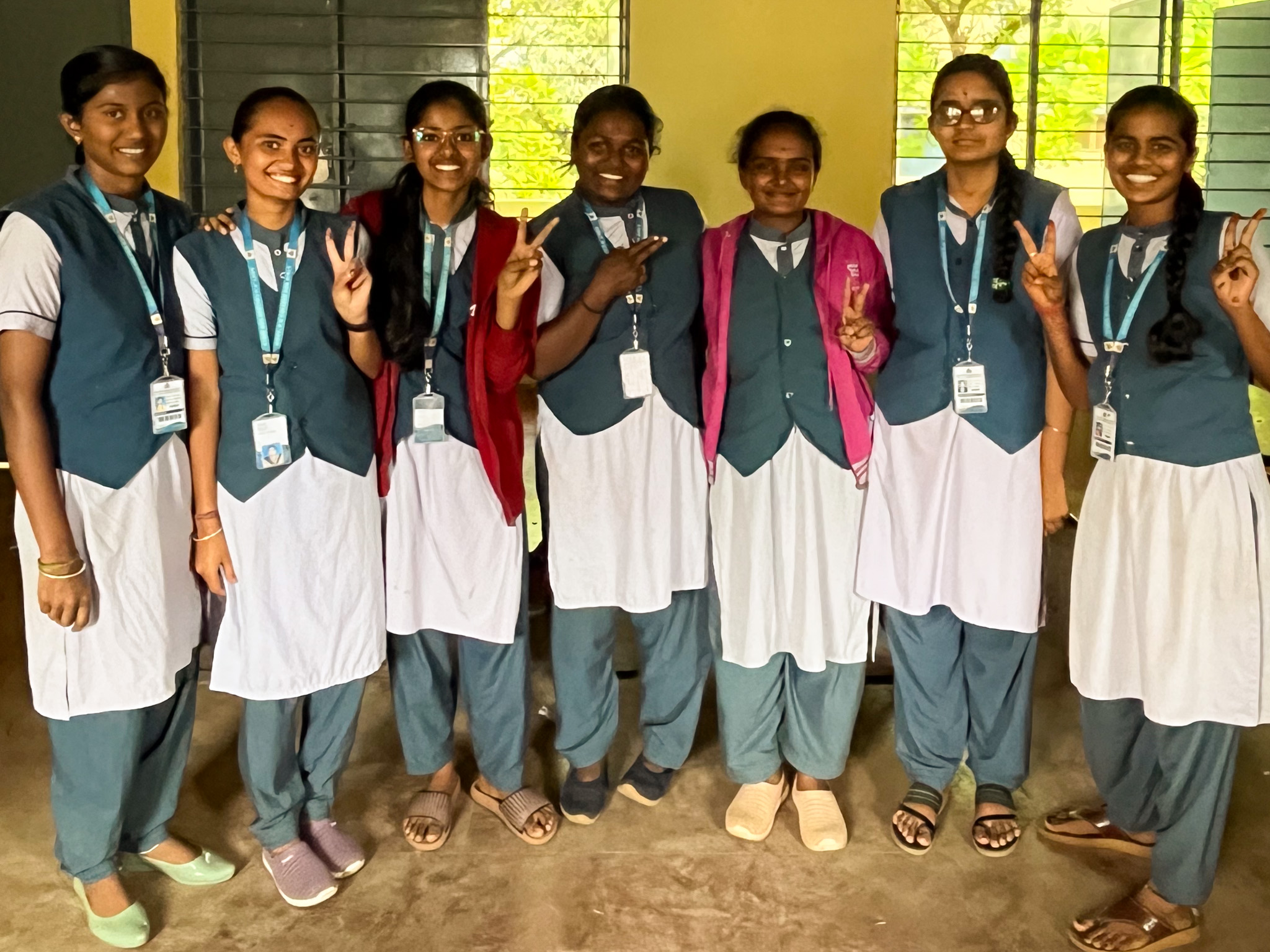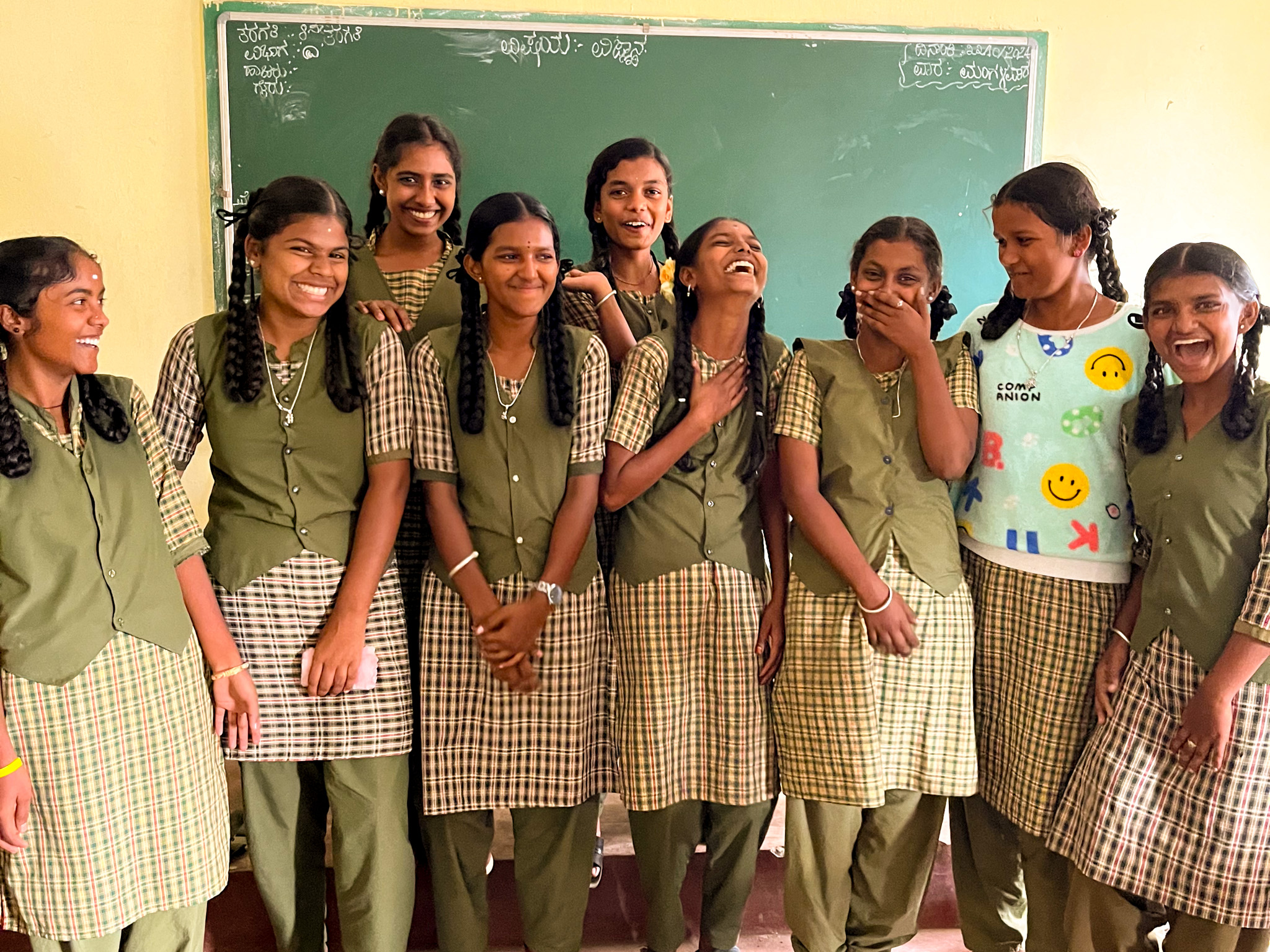Mental Health and Menstrual Health
Leveraging psychological flexibility to strengthen menstrual health outcomes with adolescents in India
Mental Health and Menstrual Health
Leveraging psychological flexibility to strengthen menstrual health outcomes with adolescents in India
In many communities, the life of a child fundamentally changes the day menstruation begins. Not only are menstruation and puberty physically painful at times, but they also bring about a new set of mental and emotional challenges that can interfere with daily life. Together with our partners at Uninhibited, we’re integrating mental health into cutting-edge menstrual health programs, together with adolescents and their communities. Through storytelling, theater, art, and conversation, we’re leveraging the power of psychological skills to strengthen menstrual health outcomes, and creating a vision where menstrual health and mental health are bidirectionally improved.
What is the community’s story?
Just like mental health, menstrual health is a vital sign. It warrants investment, understanding, and support so that millions of adolescents can experience freedom and agency to make choices that reflect their aspirations. Uninhibited has dedicated a decade to supporting nearly half a million women and girls, especially in rural and marginalized communities. They have found that while menstrual hygiene often garners attention, crucial health aspects such as menstrual irregularities, mental health impacts, and connections to broader issues like anemia, PCOS/PCOD, and teenage pregnancies are frequently overlooked. Their mission is to fill these gaps by building evidence, advocating for integrated solutions in government policies, and promoting a more comprehensive global perspective on menstrual health. By addressing these interconnected issues, Uninhibited aims to drive meaningful change in the approach to and management of menstrual health.




What is our partnership about?
Working with Uninhibited’s design team, we co-created a pilot set of sessions in 2023 to be launched with 500 adolescent girls in early 2024. This program featured three intensive sessions focusing on what the girls expressed interest in: personal confidence, relating with family and friends, and planning for their future. The sessions focused on key elements of psychological flexibility, using stories from Uninhibited’s programs, artistic expression, and meaningful discussion.
We introduced a tool called the “choice point tool,” which maps what it looks like to make choices in alignment with personal values. The tool simply helps young people identify moments in which they can make a choice— either toward or away from what matters most to them. It offers an opportunity to consider when we are being “hooked” by thoughts and feelings that carry us in the opposite direction of where we want to go, and what it would mean to be “unhooked” by those thoughts and feelings so that we are free to make decisions in our chosen direction.
The initial response from participants was overwhelmingly positive— they wanted more time spent on these topics and felt inspired to make choices reflecting what was important to them. Together with Uninhibited, we hope to help adolescents build their sense of agency and dignity at a critical juncture of their lives: a biological and social transition from childhood to adulthood.

What is the impact so far?
After our initial pilot with 500 adolescent girls in Karnataka in the first few months of 2024, we received stories from Uninhibited’s local community leaders of how the program content benefited not only the girls but the leaders themselves. Currently, we’re continuing to work on a broader model with Uninhibited for integrating mental health components into their ongoing programs and resourcing approaches for menstrual health across India.
“The students really enjoyed and appreciated the sessions. They found them interesting and helpful, especially in feeling more sure about talking to their parents about decisions. The students used to let their parents make decisions for them, but now they feel they can share their opinions and make decisions together with their parents. This change happened after we talked about hooked and unhooked topics, where students learned about decision-making,” shared Prabha, a program manager at Uninhibited.
Helping young adolescents at the beginning of puberty to build skills for decision making can benefit them for the long-term. Not only can they cultivate personal habits and behaviors that support their overall physical health, but they can also make choices about how they engage in education opportunities, romantic relationships, and family dynamics that critically affect their future.
Resourcing adolescents with menstrual health knowledge, support, and hygiene products is important; however, it is ultimately their decision as to how to respond to these resources. By building their psychological skills to make decisions in the midst of challenging circumstances, they will exercise greater agency and initiative over their menstrual health.
What have we learned?
Adolescents want to explore difficult topics in safe spaces.
It can be easy to assume that topics such as menstruation, sex, relationships, strong emotions, and self-harm behavior are taboo– and that adolescents don’t want to talk with adults about them. However, throughout Uninhibited’s program and the pilot of our mental health sessions, many participants came forward to share their experiences. Not only do they want spaces to explore these topics, but they also hope to build better ways to respond to challenges in their own lives. Adolescents are not too young to understand and learn the skills to create the realities they want to live in.
Adolescent girls do have choices and they exercise their choice-making ability daily.
One lesson the Uninhibited team shared with us, after working together, was that our collaboration helped them see that adolescents have more agency than is commonly perceived. In the development sector, it is easy to see teenagers as “victims” of their circumstances, especially those who are girls. However, seeing them this way can prevent even well-intentioned efforts from fully visualizing their potential as human beings. “We’ve realized that adolescent girls do indeed have choices,” said Shilpa, who leads program design at Uninhibited, “And we can help them make choices about menstruation and other important areas of their lives.”
